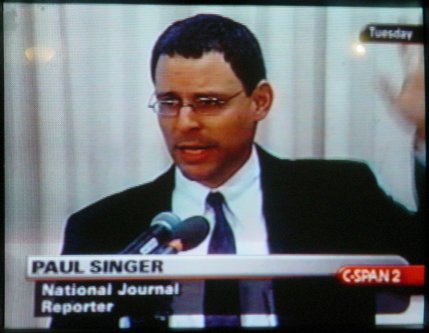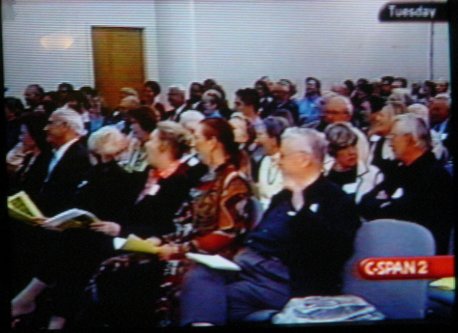The show began with Paul Singer
asking the audience how many of them use energy on a regular basis. As
you can see, few raised their hands. Then he said "you guys are part of
the problem." It wouldn't surprise me to find out that the ones that
exercised their right to remain silent were a bigger part of the
problem, there being more of them. Then he gave brief bios of the
speakers and turned it over to them, "since they know much more about
the issue than the rest of us."
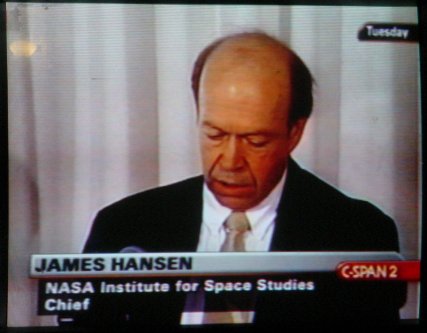
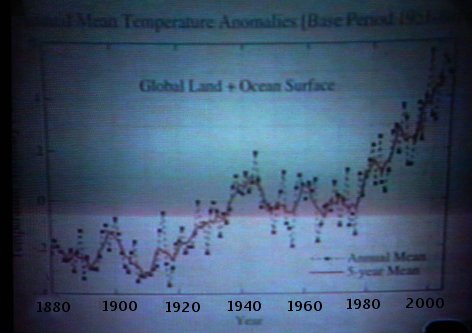
Singer had explained that Hansen
was the NASA Scientist who had shown that the problem was real. Then
his words had been edited by the White House to make it sound like he
was less sure that the problem was real. The guy had come forth as a
whistle blower to expose the editing, and that had given the issue more
traction. He reiterated the basics of the testimony here, saying in
effect "twenty years ago our effect was not strong enough to
convincingly distinguish from the noise, but now the curve has been
going up for much longer, and it is clear we are the cause." One of the
lagging effects of this is that sea temperatures will be going up
steadily for quite a while. He also compared our impact with the
largest change that occurred naturally, the end of an ice age, and said
our current impact is more dramatic.
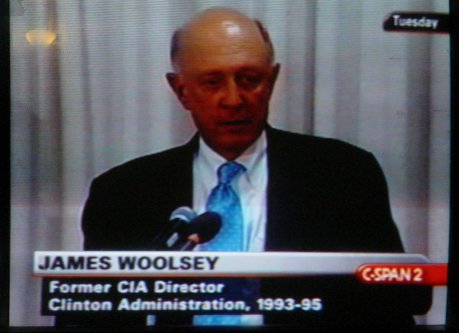
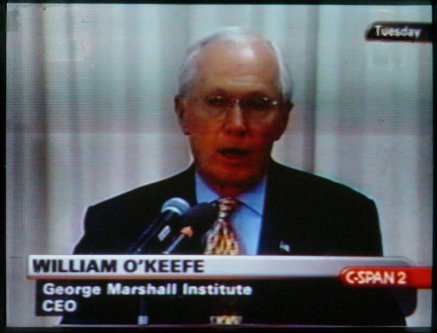
Singer had introduced James
Woolsey as "a member of that small group of people that
supports the war in Iraq and drives a hybrid car." Woolsey explained
that there
are two kinds of bad thing that can happen. Those are "malignant
problems" (cascading effects caused by unintended consequences of
random events like trees falling) and
"malevolent problems" (those caused by external forces with evil
intent like acts of war). He went on "Oil, a big driver of the Climate
Change issue, is one of those rare problems where both the
malignant and malevolent issues can be ameliorated by using less." He
warned that there are scenarios that would drive the price of oil above
$100 per barrel. His practical suggestion of a way to reduce our impact
was high
efficiency cars. He thought hybrids with enough batteries to handle
trips in the 10 to 30 mile range that you could plug in would probably
be the best
technological solution that would fit in our current system. He also
had good things to say about ethanol as long as it was not made from
corn, and biodiesel as long as it is made from waste.
Singer had introduced O'Keefe as
"the President of a think tank that concerns itself mainly with
debunking bad science in public policy." O'Keefe began by
saying he was not
related to the guy that censored Hansen. Then he said there is no
consensus about which way to go on the issue, so we must depend on
market based solutions. He pointed out that the market for small
hybrids and other fuel efficient cars is still less than 1% of
the total, and that the long life cycles of our installed
infrastructure will guarantee we must continue to import large amounts
of oil at least for the next 20 years. He felt the solution
was more realistic expectations about what
we can accomplish, instead of regulation or wasteful government
spending, although Senator Chuck Hagel of Nebraska has
introduced three bills to spur investment in better technology. He
finished by conceding that Climate Change is a real problem, and our
dependence
on Middle East oil is also a real problem.
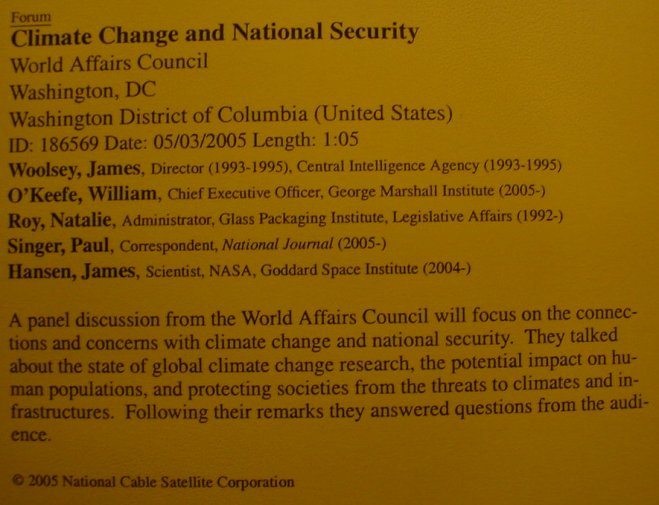
The Q&A, which I've heard was
fascinating, and in many ways better than the prepared remarks, was not
on the tape. .1205
.
